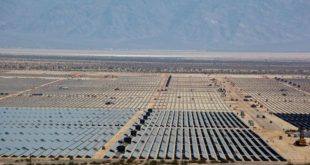Engineer Explains Why We Need to Explore Alternatives NOW
Time is running out on cheap petroleum fuels. Recent research states that we have little more than 40 years of steadily decreasing supplies of that type of energy while concurrently its price grows prohibitively high. Then it’s no more cheap oil. Then what?
That’s the question being asked and answered – by Howard Johnson, an engineer and author of the book Energy, Convenient Solutions: How Americans Can Solve the Energy Crisis in Just Ten Years (www.senesisword.com).
“We are running out of oil, period,” Johnson said. “That being said, it’s time to get down to the business of seriously developing alternatives. It is paramount that we develop realistic solutions to the energy crisis from among the multitude of products and systems that are in use, under development, or even latent ideas in the minds of America’s creative genius. We must collect and examine descriptions of fuels and energy systems — past, present, and future — and the many possible and practical ways to replace fossil fuels with renewable fuels or energy systems.”
According to Johnson, new combinations of old and emerging technologies promise amazing new ways to generate, distribute, and use energy of many kinds. The large variety of proven technologies and systems is astounding. There is no single right answer. The astonishing thing is the variety. In the long run, some will flourish while others will fall by the wayside.”
He thinks the U.S. should select new energy solutions based on some or all of the following criteria:
· be comparatively inexpensive to use.
· be developed using environmentally sound, sensitive principles.
· be far easier, simpler and less expensive to implement than systems like the hydrogen fuel cell system.
· be aaptable to our existing infrastructure with minor changes.
· use raw materials we already have or that can be developed here, locally.
· be applicable to existing vehicles with upgrades or conversions.
· be useable with existing IC (Internal Combustion) engines of all types.
· be developed using existing, evolving technology able to be essentially complete within ten years.
· create a system that is a net zero contributor of carbon dioxide to the atmosphere.
· use evolutionary as opposed to revolutionary changes — a good start to becoming constantly improvable, adaptable systems that drive numerous growing and improving technologies.
· be developed by America-based industry with the many resulting substantial benefits to our nation—social, political, and economic.
“It matters not to a driver what powers his vehicle when he presses down on the accelerator pedal.” Johnson added. “Any power system that provides adequate mobile power economically when that pedal is pressed will satisfy his needs. All of the new systems could replace fossil fuels as the prime energy source for our nation and even the world. We need to develop an entirely new and more efficient means of generating, transporting, storing and using energy that will generate profitable domestic business, good jobs and stop the hemorrhaging of billions of American dollars to nations that hate us.”
 Alternative Energy HQ solar power for homes, wind energy, and bio fuel issues
Alternative Energy HQ solar power for homes, wind energy, and bio fuel issues





